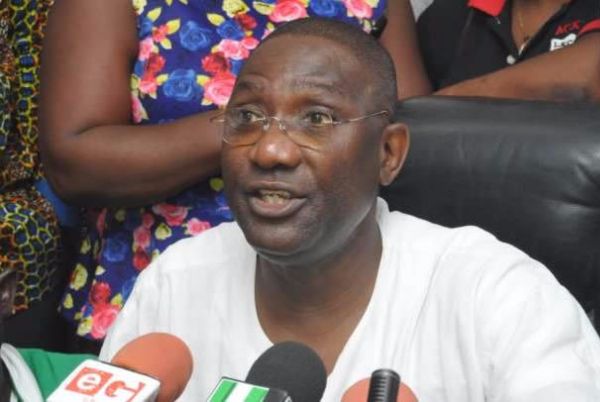Sammy Crabbe, former Vice Chairman of the New Patriotic Party (NPP), has delivered a scathing critique of the party’s internal mechanisms, attributing the NPP’s 2024 electoral defeat to a confluence of weak leadership and inadequate member training. In a candid interview with Accra-based Citi FM, Crabbe lamented the party’s failure to capitalize on the significant goodwill bestowed upon them by the electorate in January 2017. He argued that this reservoir of public trust was squandered due to the inherent weakness of the party’s structure, which, in his view, rendered it incapable of holding its members accountable and maintaining discipline. Crabbe underscored the urgent need for a comprehensive training program for elected party officials at every level, from national leadership down to polling station representatives, to equip them with the necessary skills and understanding of their respective roles and responsibilities.
Crabbe’s criticisms highlight a fundamental flaw within the NPP’s organizational framework: the absence of a systematic approach to developing and empowering its members. He draws a parallel with corporate structures, emphasizing that in any successful organization, elected officials or appointed personnel are not simply entrusted with positions of authority without proper training and development. This lack of investment in human capital, Crabbe argues, has contributed to the party’s inability to effectively implement its policies, communicate its message to the electorate, and maintain the public’s trust. The consequence, as witnessed in the 2024 elections, is a decline in public support and ultimately, electoral defeat.
The NPP’s loss in the 2024 general elections has prompted widespread introspection within the party and amongst political analysts. The party’s management of the economy, coupled with internal governance issues, has drawn considerable criticism. Voter apathy, often a symptom of disillusionment with the ruling party, also played a significant role in the NPP’s defeat. These factors, combined with what Crabbe describes as a lack of effective leadership, paint a picture of a party grappling with internal weaknesses and struggling to connect with the electorate. The loss of the 2024 elections represents a significant setback for the NPP, underscoring the urgency of addressing these underlying issues.
Crabbe’s assertion that the party’s internal structure is weak is supported by the post-election analysis, which points to a lack of effective communication and coordination within the party. This organizational weakness hindered the NPP’s ability to effectively counter negative narratives, address public concerns, and mobilize its support base. The inability to hold members accountable, as highlighted by Crabbe, further exacerbated the situation, allowing internal divisions and disagreements to fester, ultimately undermining the party’s unity and effectiveness. This lack of coherence and discipline likely contributed to the voter apathy observed during the elections.
The formation of an 11-member committee to investigate the causes of the electoral defeat is a crucial first step in the NPP’s journey towards rebuilding and reclaiming public trust. The committee’s mandate to recommend strategies for strengthening the party and restoring unity signifies a recognition of the deep-seated issues that need to be addressed. This investigation should delve into the structural weaknesses identified by Crabbe, including the lack of member training and development, as well as the broader issues of leadership and internal governance. The committee’s findings and recommendations will be pivotal in shaping the NPP’s future trajectory and its ability to regain its footing in the political landscape.
Moving forward, the NPP must prioritize strengthening its internal structures, investing in member training, and fostering a culture of accountability. The party needs to move beyond simply filling positions and focus on developing its human capital, equipping its members with the skills and knowledge necessary to effectively serve the party and the nation. This includes implementing comprehensive training programs for elected officials at all levels, focusing on leadership development, policy implementation, and effective communication. Furthermore, the party needs to address the issues of internal governance, ensuring transparency and accountability in its decision-making processes. By embracing these crucial reforms, the NPP can begin the process of rebuilding trust, strengthening its internal framework, and positioning itself for future electoral success. The 2024 defeat serves as a stark reminder of the consequences of neglecting internal capacity building and ignoring the warning signs of a weakening party structure.














